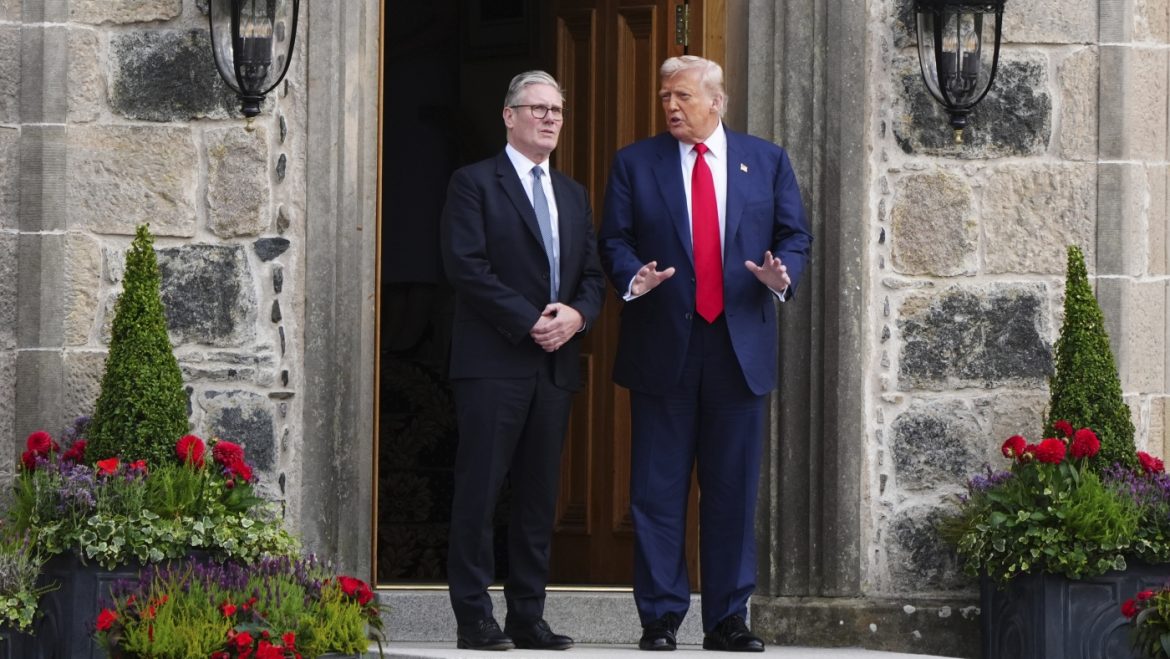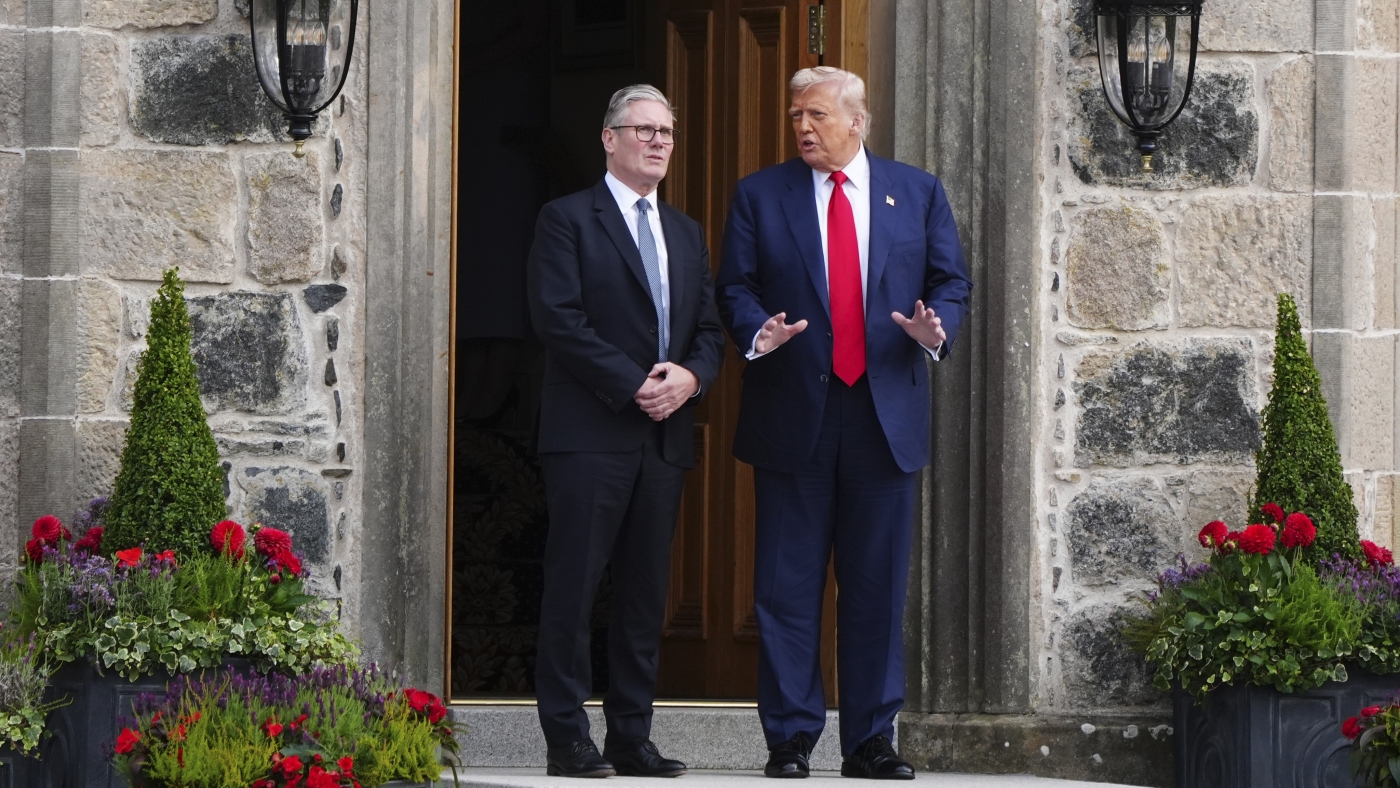The Humanitarian Crisis in Gaza: A Critical Juncture for US Foreign Policy
Introduction: A Crisis Unfolding
The humanitarian crisis in Gaza has reached a critical juncture, with reports of widespread starvation and malnutrition reaching alarming levels. The situation has garnered global attention, with international organizations and human rights groups sounding the alarm about the dire conditions faced by the Gazan population. Amidst this unfolding tragedy, former President Donald Trump’s acknowledgment of “real starvation” in Gaza has sparked a significant debate about the future of US foreign policy in the region. His statements directly contradict those of Israeli Prime Minister Benjamin Netanyahu, who has downplayed the severity of the crisis. This divergence in opinion raises critical questions about the US approach to addressing the humanitarian catastrophe in Gaza and the broader implications for the Israeli-Palestinian conflict.
A Stark Assessment: The Reality of Starvation
Trump’s blunt assessment of the situation in Gaza—”That’s real starvation stuff… I see it, you can’t fake that”—marks a significant departure from the narrative promoted by some Israeli officials. This acknowledgment carries substantial weight, as it challenges the prevailing discourse and brings the humanitarian crisis into sharper focus. International reports and humanitarian organizations have long documented the severe conditions in Gaza, with a growing number of deaths attributed to starvation and malnutrition. The World Health Organization (WHO) and the United Nations have repeatedly warned of the catastrophic impact of the blockade and the ongoing conflict on the civilian population.
The acknowledgment of “real starvation” is not merely a rhetorical shift; it has tangible implications for policy decisions. It creates space for increased pressure on Israel to ease restrictions on aid entering Gaza, a move that could alleviate immediate suffering and prevent further loss of life. Moreover, it influences public perception and media coverage, ensuring that the crisis remains at the forefront of international attention. The stark reality of starvation in Gaza demands urgent intervention, and Trump’s statement underscores the need for decisive action.
Contradicting Netanyahu: A Diplomatic Rift?
Trump’s open disagreement with Netanyahu represents a notable shift in the traditionally close relationship between the US and Israeli leaders. Historically, US administrations have generally avoided publicly criticizing Israeli policies, maintaining a stance of unwavering support. However, Trump’s willingness to challenge Netanyahu’s claims suggests a potential re-evaluation of the US approach to the Israeli-Palestinian conflict. This divergence could stem from a variety of factors, including growing international pressure, domestic political considerations, or a strategic calculation to distance himself from Netanyahu’s increasingly controversial policies.
The public disagreement between Trump and Netanyahu signals a potential strain on the US-Israel alliance, which has been a cornerstone of US foreign policy in the Middle East. The implications of this rift are far-reaching, as it could influence the dynamics of the Israeli-Palestinian conflict and the broader geopolitical landscape. The US has long been a key mediator in the region, and any shift in its stance could have significant consequences for the peace process. The question remains whether this divergence in opinion will translate into meaningful policy changes or if it is merely a temporary divergence in rhetoric.
Proposed Solutions: “Food Centers” and International Cooperation
In response to the crisis, Trump has announced plans for the US to establish “food centers” in Gaza to address the starvation. He has also indicated that other countries will join the aid effort. This proposal raises several important questions about the feasibility, coordination, and sustainability of such an initiative.
Logistical Feasibility
Establishing food centers in a conflict zone presents significant logistical challenges. The security situation in Gaza is volatile, with ongoing hostilities and restrictions on movement. Ensuring the safe delivery of aid to those in need will require robust security measures and coordination with local authorities. Additionally, the infrastructure in Gaza has been severely damaged by years of conflict, making the distribution of aid a complex undertaking. The US will need to work closely with international organizations and humanitarian agencies to navigate these challenges and ensure that aid reaches those who need it most.
Coordination with Existing Aid Efforts
The US effort to establish food centers must be carefully coordinated with existing humanitarian organizations operating in Gaza, such as the United Nations Relief and Works Agency for Palestine Refugees in the Near East (UNRWA). Avoiding duplication of efforts and maximizing efficiency will be crucial. UNRWA has been a key player in providing aid to Palestinian refugees, and its expertise and experience will be invaluable in ensuring the success of the US initiative. Collaboration with other international organizations, such as the International Committee of the Red Cross (ICRC) and the World Food Programme (WFP), will also be essential.
Sustainability
While immediate humanitarian relief is critical, addressing the root causes of food insecurity in Gaza will require long-term solutions. The ongoing conflict and restrictions on movement have created a cycle of dependency and vulnerability. Sustainable solutions must include investments in Gaza’s infrastructure, economy, and agriculture. Rebuilding damaged infrastructure, creating jobs, and promoting sustainable agricultural practices are essential for breaking the cycle of poverty and food insecurity. The US and the international community must commit to long-term development initiatives that empower the Gazan population and create a foundation for a more stable and prosperous future.
Implications for US Foreign Policy
Trump’s acknowledgment of starvation in Gaza and his proposed solutions have significant implications for US foreign policy in the region. It could signal a more assertive US role in addressing the humanitarian crisis and promoting a peaceful resolution to the Israeli-Palestinian conflict. The potential impacts of this shift are multifaceted and far-reaching.
Increased Pressure on Israel
The US could use its leverage to pressure Israel to ease restrictions on aid entering Gaza, allow greater access for humanitarian organizations, and take steps to protect civilians. The US has long been a key ally of Israel, providing military and financial support. This support comes with significant influence, and the US could use this leverage to advocate for policies that prioritize the well-being of the civilian population in Gaza. Increased pressure on Israel could also encourage a more constructive approach to the peace process, fostering dialogue and negotiation rather than confrontation.
Renewed Diplomatic Efforts
The US could play a more active role in mediating a ceasefire and promoting a long-term political solution that addresses the underlying causes of the conflict. The Israeli-Palestinian conflict has been a persistent source of instability in the Middle East, and a lasting resolution is essential for regional peace and security. The US, as a key mediator, has the potential to bring the parties to the negotiating table and facilitate meaningful dialogue. Renewed diplomatic efforts could include initiatives such as confidence-building measures, economic incentives, and international conferences to foster a conducive environment for peace.
Increased Humanitarian Aid
The US could increase its financial assistance to humanitarian organizations working in Gaza and contribute to efforts to rebuild the territory’s infrastructure. The humanitarian crisis in Gaza requires immediate and sustained support. The US, as a global leader, has a responsibility to provide assistance to those in need. Increased humanitarian aid could include funding for food distribution, medical supplies, and emergency shelter. Additionally, the US could support initiatives to rebuild Gaza’s infrastructure, such as water and sanitation systems, schools, and hospitals, to create a more resilient and self-sufficient community.
Re-evaluation of US-Israel Relations
The US could re-evaluate its unconditional support for Israel and condition future aid on progress towards a peaceful resolution of the conflict. The US-Israel alliance has been a cornerstone of US foreign policy in the Middle East, but it is not without its controversies. The US could use its influence to encourage Israel to adopt policies that prioritize the well-being of the civilian population in Gaza and promote a peaceful resolution to the conflict. This could include conditioning military and financial aid on progress towards a two-state solution, respect for human rights, and adherence to international law.
The Path Forward: Challenges and Opportunities
Addressing the starvation crisis in Gaza requires a multifaceted approach that encompasses immediate humanitarian relief, long-term development initiatives, and a resolution to the ongoing conflict. The challenges are immense, but so are the opportunities.
Immediate Humanitarian Relief
The immediate priority is to provide food, water, and medical assistance to those in need. This requires ensuring safe and unfettered access for humanitarian organizations and increasing the flow of aid into Gaza. The international community must work together to overcome logistical and political obstacles to deliver aid to the most vulnerable populations. This includes establishing secure supply routes, coordinating with local authorities, and ensuring the safety of humanitarian workers.
Long-Term Development Initiatives
Addressing the root causes of food insecurity requires investing in Gaza’s infrastructure, economy, and agriculture. This includes rebuilding damaged infrastructure, creating jobs, and promoting sustainable agricultural practices. Long-term development initiatives must focus on empowering the Gazan population and creating a foundation for a more stable and prosperous future. This could include investments in education, healthcare, and vocational training to equip the population with the skills and knowledge needed to rebuild their lives and communities.
Conflict Resolution
A lasting solution to the crisis requires a peaceful resolution to the Israeli-Palestinian conflict. This requires addressing the underlying issues that fuel the conflict, such as the occupation of Palestinian territories, the blockade of Gaza, and the status of Jerusalem. The international community must work together to promote a just and lasting peace that respects the rights and aspirations of both Israelis and Palestinians. This could include initiatives such as confidence-building measures, economic incentives, and international conferences to foster a conducive environment for peace.
Conclusion: A Turning Point?
Donald Trump’s acknowledgment of “real starvation” in Gaza represents a potentially significant turning point in US foreign policy. By challenging the Israeli narrative and proposing concrete solutions, Trump has opened the door for a more assertive US role in addressing the humanitarian crisis and promoting a peaceful resolution to the Israeli-Palestinian conflict. Whether this shift will translate into meaningful change remains to be seen. However, the recognition of the dire situation in Gaza is a crucial first step towards alleviating the suffering of its people and building a more just and sustainable future for the region.
The path forward will demand courage, commitment, and a willingness to challenge the status quo. The international community must come together to address the humanitarian crisis in Gaza and work towards a lasting resolution to the Israeli-Palestinian conflict. The potential rewards are immeasurable, as a just and peaceful resolution to the conflict will not only alleviate the suffering of the Gazan population but also contribute to regional stability and global security. The time for action is now, and the world must not look away from the crisis unfolding in Gaza.


